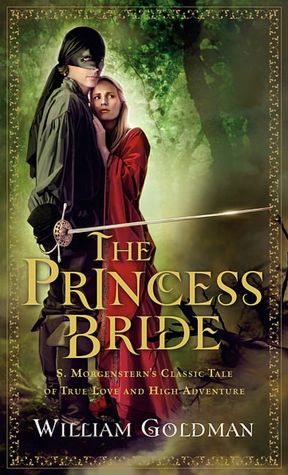 |
| Image courtesy of www.barnesandnoble.com |
William Goldman
1973
The Summary
A tale of true love and high adventure (graciously edited by William Goldman), in which the daring young Westley strives to reclaim his beloved Buttercup from the vile clutches of Prince Humperdinck.
The Good
As Morgenstern promises, The Princess Bride is a tale of true love and high adventure like no other - that is to say, it's like nothing I've ever seen.
Goldman's work is primarily tongue in cheek and satire. It's amusing and spastic with its humorous interjections and author anecdotes. In particular, the parenthetical asides made by both the author and Morgenstern convey a liberal amount of sarcasm and wit that's humorous and enjoyable (when you have the patience for it, I might add).
The Bad
This novel, no doubt, appeals only to a certain type of audience with a specific kind of humor.
For instance, some interjections, while funny, are seemingly unnecessary. I can appreciate Goldman's curious sort of humor by inserting his own "anecdotes" and offering information on the critiques he made of Morgenstern's work, his interjections can become tedious after a while.
And, all in all, The Princess Bride is completely ridiculous. If you're looking for something silly and softly incriminating of fantasy literature, Goldman's novel may be just the thing for you.
If not, I don't recommend it.
The Ugly
Buttercup is a bit of a dullard - and somewhat annoying. She embraces the damsel in distress stereotype and appears as more of a spoiled brat, or a nuisance, than an important character. I suppose this choice was intentionally made by the author to mock the stereotypes of fantasy literature, but I find many other characters far more likable.
Take Wesley, for instance. He is rather amazing and Buttercup...well, she's Buttercup and not quite so exceptional as her beau. Inigo Montoya or Fezzik, likewise, exhibit exceptional characteristics, which make them enjoyable, despite their flaws (the Spaniard is a drunkard, and the giant is timid as a mouse on certain occasions).
But Buttercup? Well, I'm still wondering what Westley sees in her.
Oh, and fair warning about the conclusion of Goldman's novel: you may find his wit and interjections increasingly frustrating by the final pages.
I don't like reality intruding upon my fantasy, just saying.
No comments:
Post a Comment